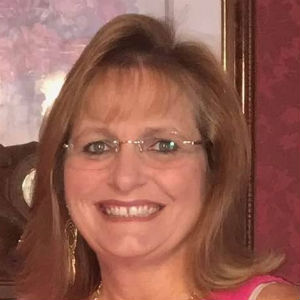
For 29 years, Fitzgerald has been in the life-saving business through her work as a Public Safety Communications Officer (PSCO), and in September, her stellar skills resulted in saving an Albemarle County man’s life by talking his wife through administering CPR.
The 4:00 a.m. call went out as “difficulty breathing” on Sept. 12, 2018, but was quickly upgraded to a cardiac arrest. Within minutes, a fire crew arrived and found 68-year-old Michael McQueen of Earlysville unresponsive and receiving chest compressions from his wife under the direction of Communications Supervisor Fitzgerald. Emergency Medical Technicians (EMTs) were able to continue chest compressions, administer the Automated External Defibrillator (AED) early, and get Mr. McQueen to the hospital.
“This was a true save that encompassed all elements of the Emergency Medical System,” said Battalion Chief Steve Elliott of Albemarle County Fire Rescue, whose team responded to the scene that day. “Without the prehospital care Mr. McQueen received, he would not have survived this event.”
Fitzgerald’s calm and clear directions during that early morning call began what is called the “Chain of Survival”, a crucial component necessary if there is any hope to saving a life in these medical emergencies.
“Cardiac arrest calls are some of the worst calls that we receive. You never get used to hearing that despair and helplessness in the caller’s voice,” said Fitzgerald. “It takes a lot out of you emotionally to remain calm and give CPR instructions to a caller when they are totally distraught and having the worst day of their life, but we are trained to take control of the conversation and give clear and concise instructions over the phone.”
ECC Operations Manager Todd Richardson has worked with Fitzgerald for 22 years and supervised her for a little over a year.
He said, “From the information that was coming in, this call could have been entered as trouble breathing with no CPR instructions ever being given, but with the training and experience that Lisa has, she pushed the caller a little further with her questioning, which then lead to the realization that the patient was indeed in cardiac arrest.”
McQueen was released from the hospital after receiving more than a week of treatment.
Feedback on the positive outcomes from these types of calls is rare in this line of work for various reasons. In Fitzgerald’s almost three-decade career, she knows of around six saves she had a hand in, to include this one.
“It was great to hear from Mr. and Mrs. McQueen. I was really touched that they took the time to send me such a heartfelt thank you card and I would love to tell them that in person,” said Fitzgerald.
On Friday, Fitzgerald got her chance to express her gratitude, along with the other first responders from that incident, when she met the McQueens under much more ideal circumstances.
“Their appreciation has really meant a lot to me,” she said.
Fitzgerald was nominated by Richardson and presented with the ECC Life Saver Award for her important role in this medical emergency. The award is part of an ongoing internal recognition program.










